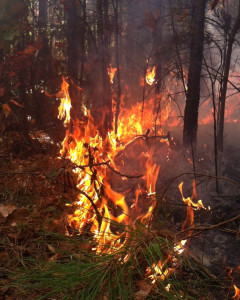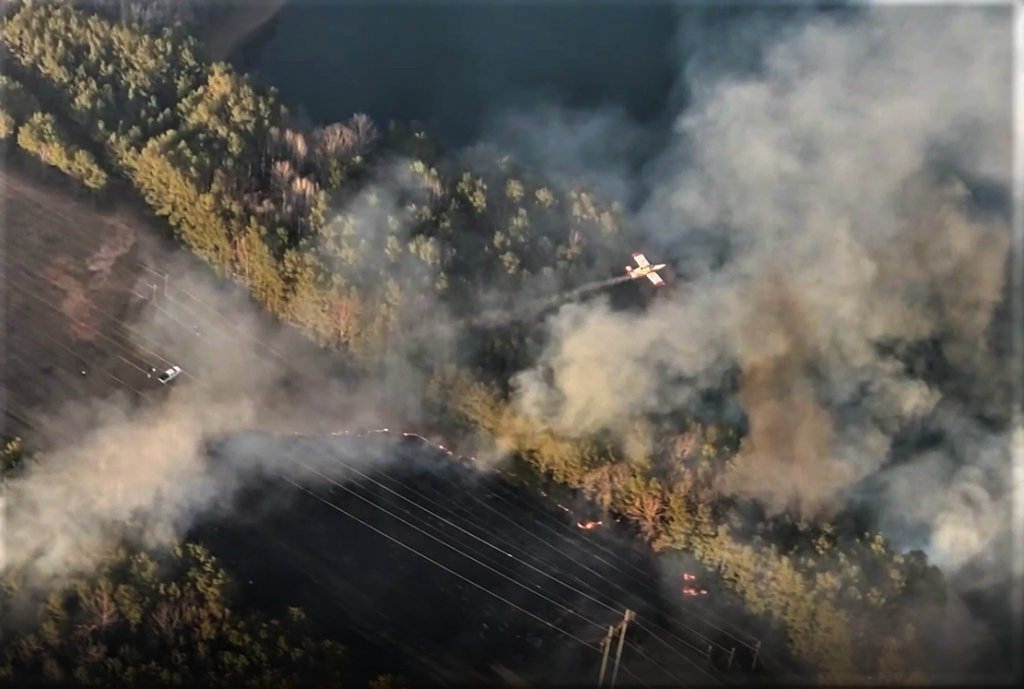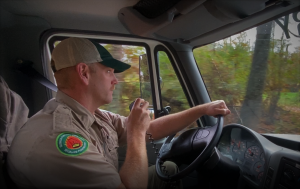Guest blog by GFC Ranger III Eric Evans

When you hear the word “wildfire,” what goes through your mind? TV news video of big blazes ripping through mountainous terrain? Images of helicopters dumping water on smoky fires below? Pictures like that are mostly associated with western fires that happen in the summer. California, for instance, averages 62,000 wildfires a year, whereas Georgia averages about 3,500.
Georgia does have a “wildfire season,” however, and it runs from February through May. It can also be hazardous. Newnan recently had a 39-acre fire the week of March 3. A resident was conducting a legal outdoor burn when winds got brisk in an area that contained dry, tornado blow-down residue. That provided tinder for sparks to start a wildfire between two neighborhoods.

At GFC’s Coweta Unit we cover three counties with two tractor/plow rigs, so when we respond to a big fire we are fully committed. We have no replacements – only other county units to call upon, which can take hours. This fire took two days to control and three more of mop-up before calling it out.
Excellent land management practices help our wildfire defense. Georgia has one million acres of prescribed burning each year, which cuts down on wildfires. When the weather conditions are right for burning yard debris, our citizens burn. But below-average rainfall and good drying days with high winds make for a very busy day for a forest ranger.

Even after 14 years as a wildfire firefighter, my job can still be difficult on family life. Being on call, constant training, and the physical demand all take their toll. It can be a very dangerous career, but it’s worth it to be able to protect and serve the forests and the outdoors that Georgians love.
From one Georgian to another – when burning, please remember to follow your local laws. Look at the GFC website for all the information you need to do it right. And think about what would happen if your fire escapes and who else would be involved; the fire department, Georgia Forestry, and other volunteers all working in dangerously hot conditions because your fire got out.
So next time you burn ask yourself, “Am I fully prepared?” The safety precautions you take today can impact the well-being of your property, your family, and your neighbors. Don’t let them down!
